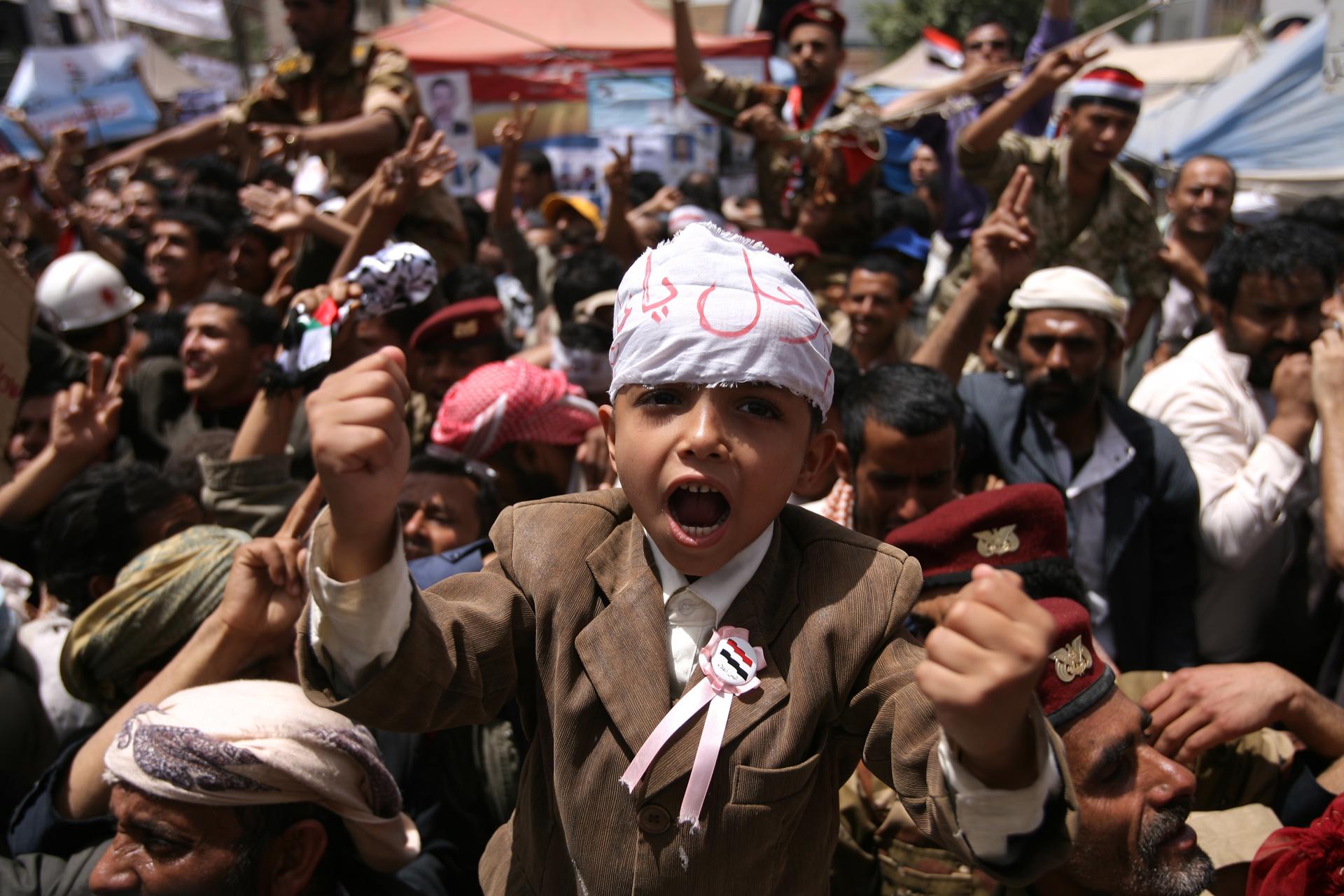Pro-Saleh groups upstage demonstrators in Sanaa (VIDEO)
Yemeni anti-government protesters shout slogans during a demonstration demanding the resignation of Yemeni President Ali Abdullah Saleh in Sanaa on March 31, 2011 as Saleh and his opponents prepared for another tense Friday in a two-month-long showdown with calls for rival demonstrations.
Massive rival demonstrations divided Yemen's capital, in protest and support of President Ali Abdullah Saleh, amid unprecedented numbers of security personnel Friday.
The opposition movement told Al Jazeera they had persuaded hundreds of thousands of people in over 15 provinces in Yemen to come out on the streets demanding that Saleh end his 32-year long rule.
But in Sanaa, the capital, anti-regime protesters, numbering in their tens of thousands, appeared to have been upstaged by Saleh supporters, who packed squares around the city waving flags and banners and streaming through checkpoints set up by security forces.
Hundreds of security personnel have been deployed at checkpoints across the city, and tanks have rolled through the streets, according to Al Jazeera.
Convoys of cars flying Yemeni flags reportedly poured into the capital from the surrounding countryside early Friday for the pro-Saleh rally, Agence France-Presse reported. "The people want Ali Abdullah Saleh," they chanted.
The army, many of whose officers have rallied with the pro-democracy camp led by youths, controlled access to the "Change Square" renamed by anti-regime protesters near Sanaa University.
The BBC reported that the two groups were marching in two different directions in the capital, with anti-government protesters moving towards the renamed "Change Square" near the university, while Saleh supporters were gathering in the city's Tahrir Square about a mile away.
The U.K. foreign office had warned of a "high possibility of violent demonstrations" on Friday, urging British citizens to leave Yemen as soon as possible.
"I pledge… to sacrifice myself for the people, with my blood and with everything I hold dear," said Saleh from a stage in Sabiine Square near the presidential palace, AFP reported. He also thanked supporters inside and outside Yemen in the face of two months of escalating protests calling for his ouster.
Amid fears of a confrontation between the two sides on Friday, the day of prayer, the BBC reported that representatives from the government and opposition had met and agreed to avoid confrontation.
Protesters and opposition figures have blamed Saleh for ongoing violence that intensified after a March 18 massacre of more than 40 people outside Sanaa University by regime loyalists, which drew widespread international condemnation and a string of regime defections — that has raised U.S. fears of chaos that could benefit militants.
The main coalition of opposition groups has also directly blamed Saleh for the presence of militants, including Al Qaeda, in Abyan province where a munitions factory blast last week killed over 100 people. The blast occurred after residents broke in to steal ammunition a day after clashes between Islamist militants and the army in the town of Jaar.
Saleh has co-operated closely with the U.S. in the battle against Al Qaeda's Yemen branch, which has used areas of the country that have long been out of state control to launch attacks.
The U.S. and Saudi Arabia are concerned about the activities of Al Qaeda in Yemen, are worried over who might succeed their ally, with Defense Secretary Robert Gates reportedly saying this week that he sees the possible fall of Saleh as a “real problem.”
Saleh's opposition have accused him of exploiting Western fears that Al Qaeda could rise to fill a vacuum if he were ousted.
— Freya Petersen
